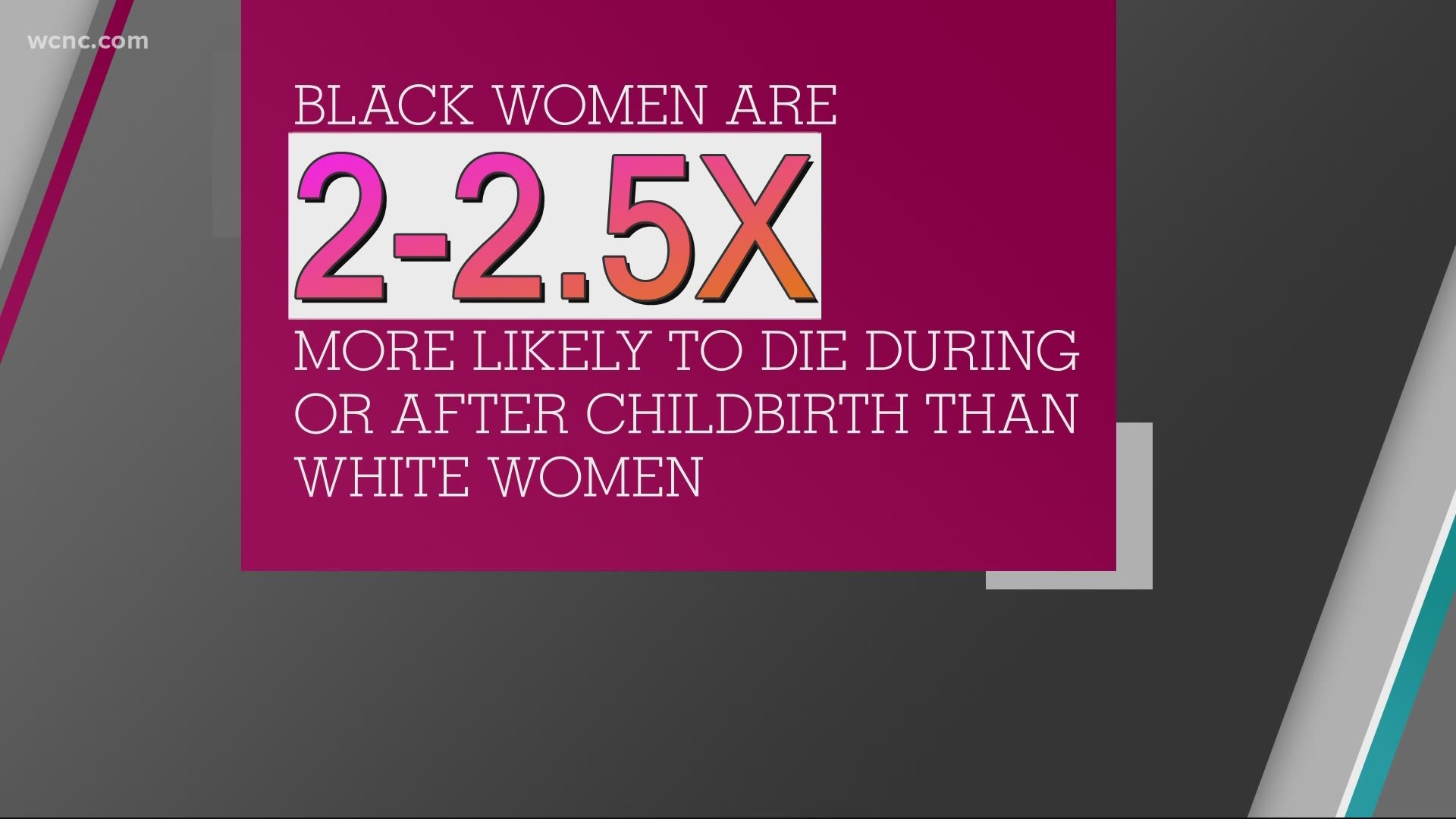CHARLOTTE, N.C. — Congresswoman Alma Adams remembered vividly the day her daughter nearly lost her life. It happened when her daughter was trying to bring life into this world.
“A physician overlooking my daughter’s complaints of pain in her abdomen, not listening to her needs as a Black woman,” Adams said. “Their dismissal of her pain almost cost my daughter her life.”
Adams’ daughter’s experience is one that echoes through the Black community. Maternal mortality rates are two to three times higher for Black women compared to their white counterparts.
For every one woman who dies, experts estimate there are dozens of other “near misses.”
RELATED: Black doctors in white coats on a mission to cure racism and discrimination in the workplace
“It’s shameful,” Sen. Cory Booker, (D)-NJ said. “We know that these existing disparities in our health care system continue to be saddled with unacceptable bias and racism where we see the pain of Black women in particular.”
On Monday, Adams along with Rep. Lauren Underwood (D)-IL and Booker re-introduced the Black Maternal Health ‘Momnibus’ Act. The act comprises 12 pieces of legislation that aim to confront the social and economic determinants that influence maternal health.
Thus far, the bills have more than 80 co-sponsors in the House. Booker, who is a new partner this legislative session, said the legislation has bipartisan support in the Senate as well.
“These disparities are unacceptable,” said Underwood, who lost a good friend, Dr. Shalon Irving, in the days after giving birth four years ago. “The hour for bold action has arrived.”
The legislation includes support for community-based organizations, a push for more data collection, efforts to add diversity in the health care professions, and ways to address racism in the health care system.
“Rooting our racism in our healthcare system cannot be done in a one-hour webinar training,” Underwood said. “What we are talking about is changing culture and creating accountability standards so that we are no longer as a nation accepting this as the standard quo.”
The bills also examine some of the social contributors to poorer outcomes such as access to health care, housing, transportation and environmental inequities.
“This is common-sense legislation that will save moms’ lives and confront the deadly disparities, the injustice, the darkness in the maternal health crisis,” Booker said.
Nine of the 12 bills were introduced last year, just one week before COVID-19 caused much of America to grind to a halt.
Underwood pointed out, COVID-19 heightened the already-existing inequities. According to the Centers for Disease Control and Prevention, there is increasing evidence that Black women and other ethnic minority groups are being disproportionately affected by COVID-19.
Two of the bills specifically target COVID-related inequities such as testing, vaccinations and clinical trials for pregnant women.
“We wanted to ensure that we had specific provisions in the Momnibus that would respond to this specific moment in time,” Underwood said.
For Adams, the Momnibus is personal. But, she said, the lives of mothers in our community should be important to us all.
“These terrible inequities in our society and in our healthcare systems have stolen countless mothers from their children,” Adams said. “We’re gonna get this done. We’re gonna get this done for Black mamas because our mamas can’t wait.”

